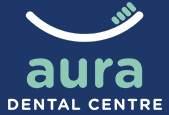TMJ Disorders
The joint that hinges your jawbone to the rest of your skull is called the temporomandibular joint. The joint connects the jawbone, or mandible, with the temporal bone of the skull, hence its name.
Disorders of the TMJ are classified as a family of complications that all affect the function of your TMJ. Typically, symptoms such as a “clicking” sound or pain can signify a TMJ disorder—but don’t worry, these problems can be easily diagnosed and treated thanks to modern medicine.
Symptoms of TMJ disorder tend to occur when the joints connecting the jaw and the chewing muscles, also known as the mastication, are not cooperating and functioning properly.
What are causes of TMJ disorders?
There are a variety of reasons why TMJ disorders can develop. For instance, you might find yourself constantly clenching or grinding your teeth, which can strain your jaw muscles and stress your TMJ.
As well, injury or disease can lead to alterations in TMJ functionality by affecting the tissues that control its flexibility and/or structure. For instance, injuries and arthritis can directly damage your TMJ and/or stretch or tear the ligaments that connect the muscles.
If this happens, there is a tiny cartilaginous disk within the TMJ that functions as a cushion, and it may slip out of its regular position. As a result, you may end up with a misaligned bite, pain, clicking, or a grating noise when opening your mouth. Moreover, you may experience issues when trying to open your mouth wide.
Am I experiencing symptoms of TMJ disorder?
It is important to understand signs and symptoms of TMJ disorders so that treatment can be delivered early to resolve the disorder completely. Doing so is imperative as treatment for TMJ disorders can take time to become effective.
Signs and symptoms that may indicate TMJ disorder
- Teeth grinding or clenching
- Waking up with stiff and sore muscles around your jaw
- Frequent headaches and/or neck aches
- Pain worsens when clenching your teeth, which is potentiated when you are stressed
- Clicking, popping, grating, catching, or locking of your jaw when you open your mouth
- Pain or difficulty when opening your mouth, eating, or yawning
- History of injury to your neck, head, or jaws
- Joint problems (e.g., arthritis) in other areas of your body
- Teeth that no longer touch when you bite down
- Having teeth that occasionally align, or meet, differently when biting down or smiling
- Difficulty using your front teeth to tear or bite food
- Sensitive, loose, broken, or worn-down teeth
The more items in this list that you are currently experiencing, the higher the likelihood that you may have a TMJ disorder. If you may be concerned about possibly having a TMJ disorder, consult our dentists today and we will provide you with a full work-up and informative assessment regarding your TMJ status.
Treating a TMJ disorder
Fortunately, there are many options available that are capable treating TMJ disorders and restoring your TMJ to its natural function and comfortability.
Typically, you will consult one of our dentists if you think you may be experiencing TMJ complications. But if a diagnosis is confirmed, the appropriate treatment will be discussed with you by one of our dentists or dental specialists. An important consideration is that TMJ restorative treatments are most successful using a team approach that includes optimal self-care by you combined with professional care provided by our dental team.
When initiating treatment, the first goal is to relieve any muscle spasms or joint pain that you may have. This goal can easily be achieved through the use of medicinal drugs like pain relievers, anti-inflammatories, and/or muscle relaxants.
Importantly, our dental specialists may even inject an anti-inflammatory steroid directly into the TMJ to provide immediate relief from pain and inflammation.
Self-care interventions
When it comes to self-care, the following are effective ways you can accelerate your recovery from a TMJ disorder:
- Resting your jaw
- Maintaining a gap between your upper and lower teeth, aside from when you are swallowing or eating
- Consuming softer foods
- Applying ice and heat periodically
- Practicing and maintaining good posture
- Practicing biofeedback or physical therapy for stress management, as stress can cause significant strain on the TMJ
Physical interventions
In addition to the abovementioned approaches, we also recommend using a splint, which is a clear plastic appliance that fits over your top or bottom teeth and can aid in maintaining the aforementioned gap between the upper and lower teeth. Similar to a nightguard, a splint can help you relax your muscles and reduce pain, and significantly reduce the complications that can arise from teeth grinding or clenching (i.e., bruxism).
There are different types of plastic appliances that can be used for these purposes. Some examples are:
- Nightguard—helps you stop clenching or grinding teeth and can significantly reduce muscle tension at night to help protect the cartilage within and/or surfaces of the TMJ.
- Anterior positioning appliance—this helps you transition your jaw forward which can relieve pressure on portions of your jaw. This will also help in repositioning the cartilaginous disk within your TMJ and can be worn 24 hours per day to enable an accelerated recovery
- Orthotic stabilization appliance—this can also be worn for 24 hours per day or just a night when you are sleeping. This appliance helps move your jaw into its appropriate position and can provide protection against tooth wear-and-tear that may occur from grinding/clenching.
Surgical interventions
There may be cases where a patient is experiencing issues regarding how their teeth fit together. In these cases, bite adjustment (i.e., equilibration), orthodontics that include or do not include jaw reconstruction, or restorative dental work may be required. In addition, surgical interventions such as arthroscopy as well as open joint repair restructuring are alternative approaches that are needed, but only in the most severe/extreme cases of TMJ disorder.
Call us today at (204) 560-4500 to book an appointment if you would like to speak with one of our dentists about complications you may be having with your bite.

